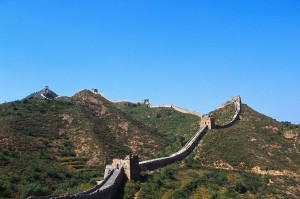According to a study by McKinsey & Co., a global management and corporate consulting firm, China is set to outstrip Japan as the world’s largest market for luxury goods with sales increasing to $27 billion by 2015. This year, stock for Louis Vuitton rose 20 percent in the first quarter thanks to a 25 percent jump in sales from China.
Despite the opportunities, luxury brands do face some obstacles in China as they try to expand their customer base.
 Lack of Support to Online Retailers from Top Brands
Lack of Support to Online Retailers from Top Brands
Because of potential issues with the supply chain and with the way luxury goods are obtained, brands like Prada, Gucci and Cartier have not authorized any non-proprietary websites to sell their goods in China. To prevent the unauthorized sale of their goods, many luxury companies are considering clamping down on the amount of goods that individuals can buy. Third-party retailers would have to make more overseas trips to purchase the goods, which would drive up their costs and make carrying luxury brands prohibitive.
Exclusivity Obstacles
Cheap sales of luxury goods from unauthorized retailers hurt the interests of brick and mortar luxury stores. For instance, after a Chinese website sold Tissot watches for 25 percent off as a Father’s Day promotion, Tissot China stated that it would not provide after-sales service for the watches. Luxury brands also don’t want to see their goods sold alongside medium-priced goods from less reputable companies, which often happens as third-party websites try to turn a profit.
Turning Challenges into Opportunities
As spending power in China only continues to grow, luxury brands must figure out how to capitalize on this tremendous opportunity. To be competitive, international retailers will have to insist on equal opportunities to buy real estate in the country.
Luxury brands will also have to fight the large base of customers who are price-sensitive, looking for value rather than prestige when they make purchases. Luxury retailers must also outsource non-essential functions so that they can cut costs while focusing on making retailing and customer service their core competencies in the Chinese market.




Recent Comments